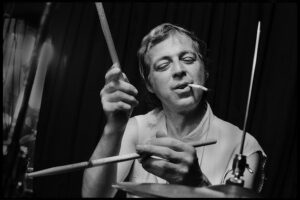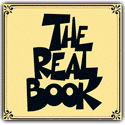Claude Ranger: The Beating Heart of Canadian Jazz

Early Life and Musical Beginnings
Claude Ranger, born on February 3, 1941, in Montreal, was a Canadian jazz drummer, composer, arranger, and teacher. His journey into the world of music began with studying drums with several teachers and arranging with Frank Mella. He started his career with Montreal show bands and quickly became a leading figure among the city’s jazz musicians by the mid-1960s.
Establishing His Presence
Ranger was known for his natural swing, great stamina, and sometimes working against the grain of jazz in Canada. He was a sideman to Lee Gagnon, Pierre Leduc, Ron Proby among others, and the leader of bands heard on the CBC’s “Jazz en liberté.” He was a member of Aquarius Rising with Brian Barley, Michel Donato, and Daniel Lessard from 1969 to 1971.
Moving to Toronto
In 1972, Ranger moved to Toronto, where he was a member of the Moe Koffman Quintet from 1978 to 1980. He accompanied Canadian and US musicians such as Lenny Breau, George Coleman, Larry Coryell, Sonny Greenwich, James Moody, Doug Riley, Don Thompson, and Phil Woods in the city’s clubs. His own bands appeared at the Music Gallery and at Jazz City in 1982, the Festival international de jazz de Montréal (FIJM) in 1982, 1984, and 1986, and the Ottawa International Jazz Festival in 1985.
Recognition and Awards
A Ranger quintet was a finalist in the 1986 FIJM, and Ranger received a special jury citation for his drumming. His ensembles included saxophonists Ron Allen, Terry Dean, Jane Fair, Rob Frayne, Steve Hall, Kirk MacDonald, and Perry White, trombonist Steve Donald, trumpeter Michael White, cornetist Roland Bourgeois, and bassists Dick Felix, Martin Melançon, and Mike Milligan.
Later Years and Legacy
In 1987, Ranger moved to Vancouver, serving as a mainstay of the du Maurier International Jazz Festival, again as an accompanist to Canadian and US musicians and as a leader of his own groups. West coast musicians Ron Samworth, Clyde Reed, Bruce Freedman, and drummer Dylan vander Schyff also influenced Ranger’s career. His ensembles ranged from a trio to the 15-piece (later 19-piece) Jade Orchestra that debuted at the 1990 Vancouver festival.
- “Challenge”: This early composition by Ranger features ascending patterns employed as a springboard to free improvisation.
- “Showbar”: Another early work, “Showbar” showcases Ranger’s innovative approach to jazz composition.
- “Le Pingouin”: Recorded by Brian Barley, this composition highlights Ranger’s ability to create complex and engaging jazz pieces.
- “Tickle”: This piece was recorded by Dr Music, and it demonstrates Ranger’s playful side.
- “Feu Vert”: Recorded by Dave Liebman, “Feu Vert” is a testament to Ranger’s skill as a composer.
- Recordings with Lee Gagnon: Ranger was a sideman to Lee Gagnon at La Jazztek from 1967 to 1969, contributing to several recordings during this period.
- Recordings with the Moe Koffman Quintet: Ranger was a member of the Moe Koffman Quintet from 1978 to 1980, and his drumming can be heard on several of their recordings.
- Recordings with Aquarius Rising: As a member of Aquarius Rising from 1969 to 1971, Ranger contributed to many recordings that have become staples in the Canadian jazz scene.
- Recordings with the Jade Orchestra: Ranger’s ensembles ranged from a trio to the 15-piece (later 19-piece) Jade Orchestra that debuted at the 1990 Vancouver festival.
Recordings with various musicians in Vancouver: After moving to Vancouver in 1987, Ranger served as a mainstay of the du Maurier International Jazz Festival, again as an accompanist to Canadian and US musicians and as a leader of his own groups



